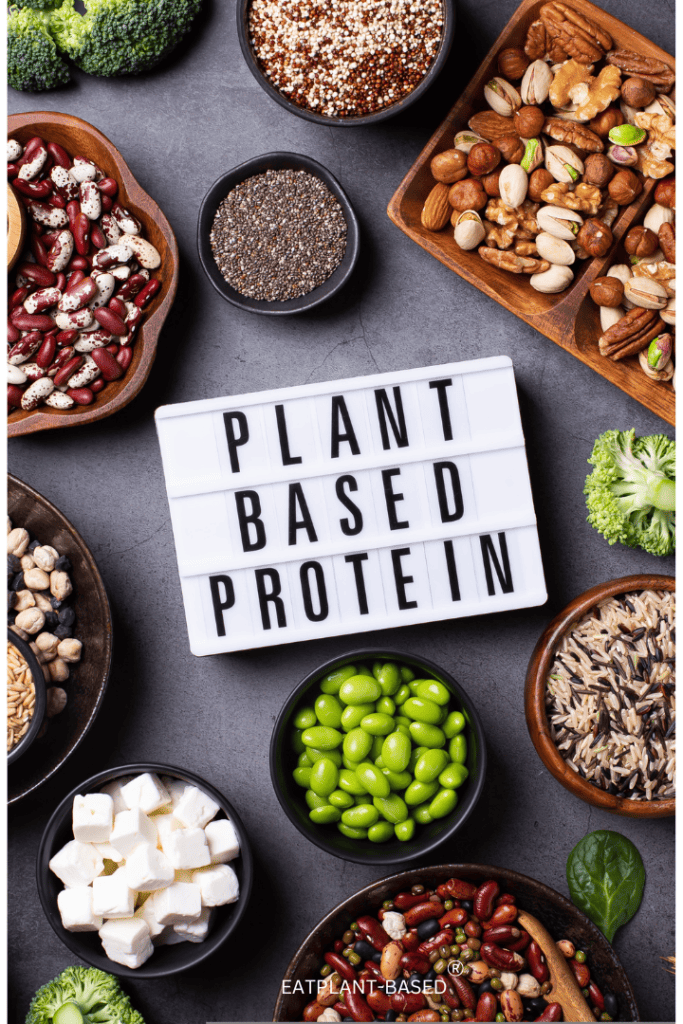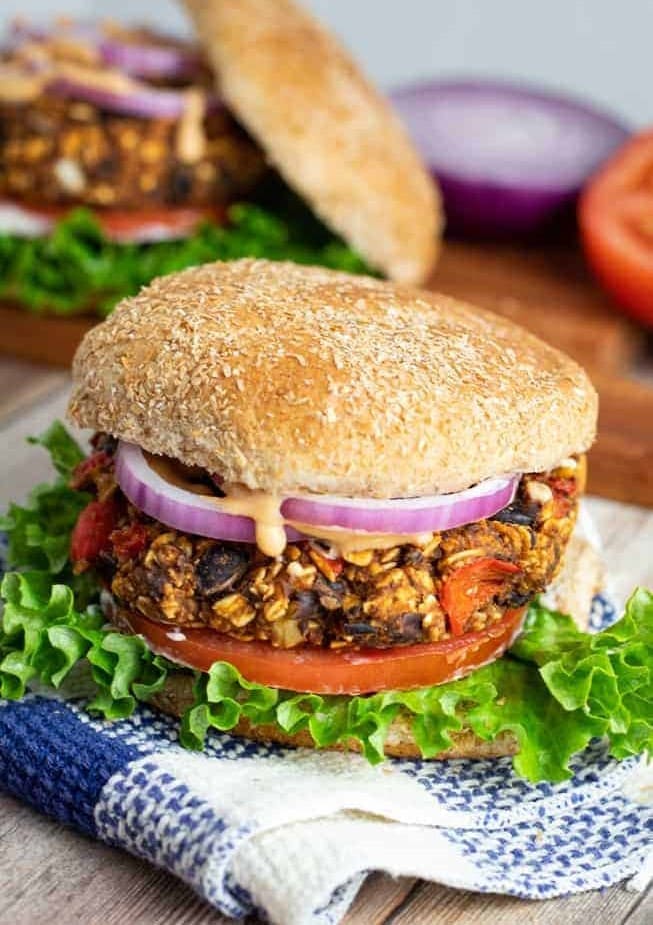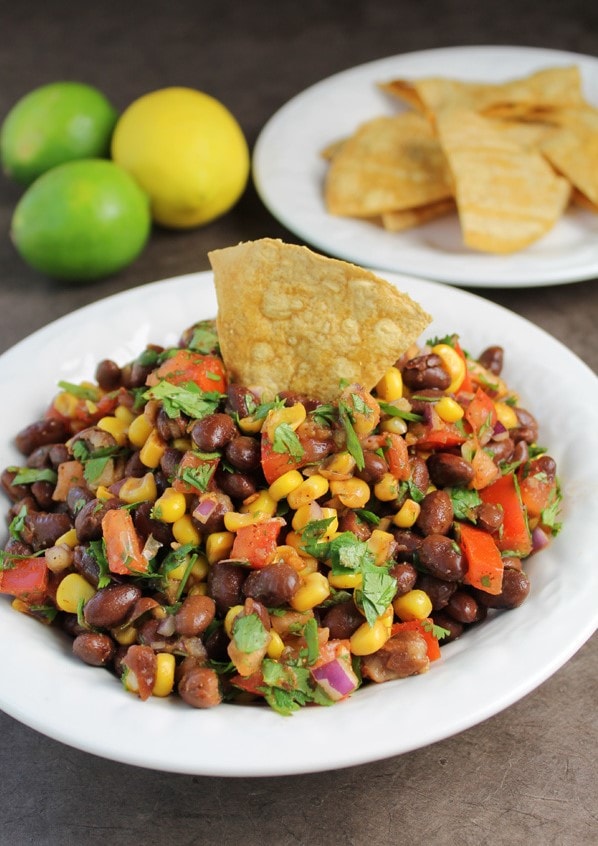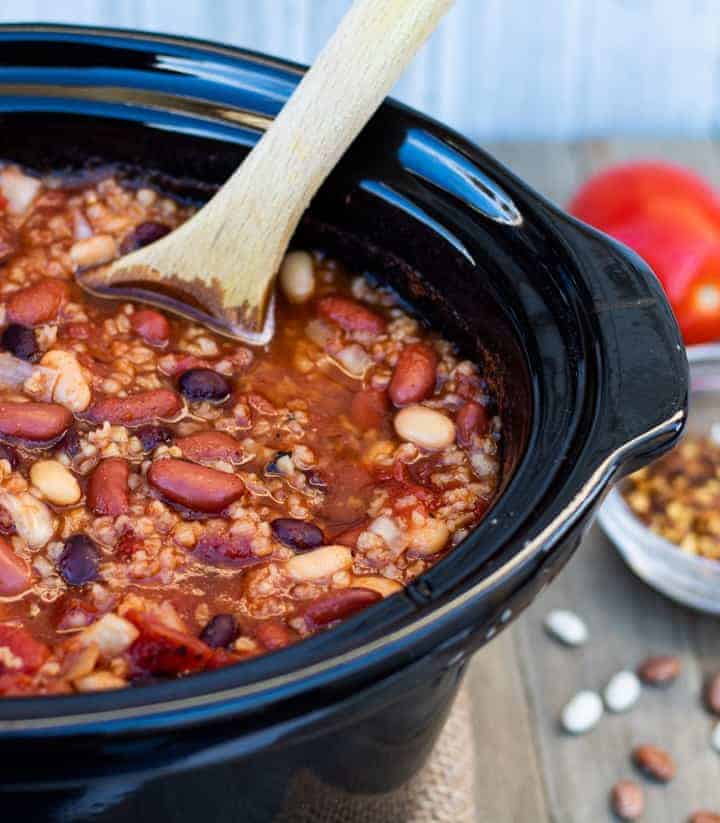Plant-Based Protein: Getting Enough Protein
A frequent concern regarding vegetarian, vegan, and plant-based diets is that they may lack sufficient protein. However, research demonstrates that a healthy meatless diet can provide all the nutrients needed including protein.

By: Brenda Davis, RD; Vesanto Melina, MS, RD; Corey Davis, MBA, P.Ag
The #1 question when transitioning to a plant-based diet is Can I get enough protein? And, the answer is a resounding YES!
Getting enough protein
The spectrum of views on protein adequacy has two ends and a big middle. At one end is a view that equates protein with animal products and assumes that protein intake must be insufficient without these. At the other end of the spectrum is the view that protein is no issue at all; that everyone gets enough. What’s the truth?
Research shows that most adults, including vegans, in Western countries get more than enough protein. All grains, legumes, seeds, nuts, and vegetables are sources of protein, and even fruits contain a little protein. Therefore, it is true that plant-based diets can easily provide the recommended protein intake, and more. Yet in some parts of the world, where foods or variety are extremely limited, protein deficiency is a problem.
A diet can be short of protein if it’s centered around fruit (as in some raw vegan diets), is low in calories (as with anorexia or someone who has lost his or her appetite), incorporates too many junk foods (chips, sodas, fats, refined foods, and sweets can all be vegan), or includes minimal amounts of legumes (beans, peas, lentils, soy foods, and peanuts) or seeds and nuts. For the elderly, protein intake can be an issue. Athletes also need more protein.
Signs of protein deficiency
Physical signs of protein deficiency include edema (swelling due to fluid leaving blood vessels and collecting in feet or other parts of the body) and greater risk or severity of infections. Muscle wasting and a higher risk of bone fracture occur, especially in seniors. Severe protein deficiency can cause red, flaky, or depigmented skin, brittle nails, thin and fragile hair, and hair loss. Infants and children can fail to thrive and their growth may be stunted.
A mild shortage of dietary protein may increase appetite and even cause obesity, whereas severe deficiency can lead to poor appetite. Low serum albumin is a laboratory test that can indicate protein deficiency.
How much protein do people get?
The National Health and Nutrition Examination Survey found that Americans consume, on average, 88.2 grams of protein per day. This is 14–16 percent of calories. For a man whose healthy body weight is 154 pounds (70 kg), this intake exceeds the recommended dietary allowance by 25–30 percent. For a woman who weighs 127 pounds (58 kg), this is almost double the recommended dietary allowance.
In the United States, close to two-thirds of the protein comes from animal-based sources. Large studies in the United Kingdom, France, and across North America compared intakes of meat eaters, vegans, and people in between who consumed some animal products but not meat. There were significant differences in protein intakes between the diet categories in the UK and France. In contrast, the Adventist Health Study-2 (AHS-2) showed similar protein intakes across all of these health-conscious dietary groups.
Comparing protein for building strength and bones
A recent study found no difference in strength in athletes who were getting 1.6 grams of protein per kilogram of body weight (double the RDA), whether the protein came from plants (in the form of soy) or animals (in the form of whey).
The Adventist Health Study-2 found no difference in fracture risk and bone strength for men with different dietary choices and none for women, as long as they were getting enough calcium and vitamin D.
How much protein is too much?
Our liver gets rid of extra protein by splitting off the nitrogen-containing amino group, resulting in ammonia (NH3). The liver converts ammonia to urea, which is then excreted through the kidneys in urine.
Some nitrogen goes to the hair, skin, and nails, where it is bound to protein, forming building blocks. Very high protein intakes (for example, from meat or overuse of protein supplements) can overload certain organs or increase the risk of chronic disease.
A summary of 32 research papers linked protein overconsumption with disorders of these organs:
- Liver– excessively high levels of liver enzymes and albumin protein in the blood
- Kidney– too much urea, acid load, and risk of kidney stones
- Colon– increased risk of colon and other cancers with red meat
- Heart– progression of cardiovascular disease
We don’t find the same excessive protein intakes among adults on varied whole-food, plant-based diets.
Protein intake by country (UK, France, North America)
| Dietary category/ Country/ Study/ Participants | Daily grams of protein | % of calories from protein |
| MEAT EATERS | ||
|---|---|---|
| EPIC-Oxford Study UK, 30,251 participants | 90 g | 17.2% |
| Nutrinet-Santé Study France, 93,823 participants | 84 g | 17.6% |
| AHS-2 Study United States and Canada, 71,751 participants | 74.7 g | 14.7% |
| PEOPLE WITH DIETS THAT FALL BETWEEN MEAT EATERS AND VEGAN | ||
|---|---|---|
| EPIC-Oxford Study UK, 30,251 participants | 70 g (lacto-ovo vegetarians) 79 g (fish eaters) | 14% (lacto-ovo vegetarians) 15.5% (fish eaters) |
| Nutrinet-Santé Study France, 93,823 participants | 64 g (neither meat eaters nor vegans) | 14.2% |
| AHS-2 Study United States and Canada, 71,751 participants | 70.6 g (lacto-ovo vegetarians) 72.7 g (fish eaters) | 13.7% (lacto-ovo vegetarians) 14.2% (fish eaters) |
| VEGANS | ||
|---|---|---|
| EPIC-Oxford Study UK, 30,251 participants | 64 g | 13.1% |
| Nutrinet-Santé Study France, 93,823 participants | 60 g | 12.8% |
| AHS-2 Study United States and Canada, 71,751 participants | 70.7 g | 14.4% |
The Bottom Line
- Research shows that most adults, including vegans, in Western countries get more than enough protein.
- Studies have shown no difference in strength in athletes who were getting protein from plants versus animals.
- Most Americans exceed the recommended dietary allowance for protein.
- High protein intakes can overload certain organs or increase the risk of chronic disease of the liver, kidneys, colon, and heart.
- We don’t find the same excessive protein intakes among adults on varied whole-food, plant-based diets.
This article is an excerpt from Plant-Powered Protein: Nutrition Essentials and Dietary Guidelines for All Ages by guest authors Brenda Davis, RD; Vesanto Melina, MS, RD; and Cory Davis, MBA. P.Ag. Published here with permission.
About the Authors

Brenda Davis, RD is one of the world’s leading plant-based pioneers and an internationally acclaimed speaker. Widely regarded as a rock star of plant-based nutrition, she has been referred to by VegNews as the “godmother” of vegan dietitians and was the 2022 recipient of the Plantrician Project’s Luminary Award. Brenda’s work focuses on ensuring that everyone who wishes to be plant-based can succeed brilliantly. She lives in Alberta, Canada, with her husband, Paul. She can be contacted through her website.

Vesanto Melina, MS, RD is a sought-after speaker at health conferences worldwide. A consultant for individuals as well as the government of British Columbia, she is the lead author of the last position paper on vegetarian diets for the Academy of Nutrition and Dietetics. Also, Vesanto received the prestigious Ryley-Jeffs Memorial Award from the Dietitians of Canada. She resides in Vancouver, Canada, with her partner, Cam. She can be contacted through her website.

Cory Davis, MBA, P.Ag. is a professional agrologist who has worked in natural resource management since 2012 and has been a lifelong advocate for animal welfare and environmental stewardship. His broad range of experience and diverse degrees encompassing business, the sciences, and intercultural relations have given him a unique, integrated perspective on sustainable practices and their effects on human health and well-being. Cory lives in British Columbia, Canada, and he can be contacted through his website.
More articles on vegan protein
High-Protein Plant-Based Recipes
For those of you new to the whole food plant-based lifestyle, we’ve created a FREE 7-Day Plant-Based Menu Planner to help you get started!




